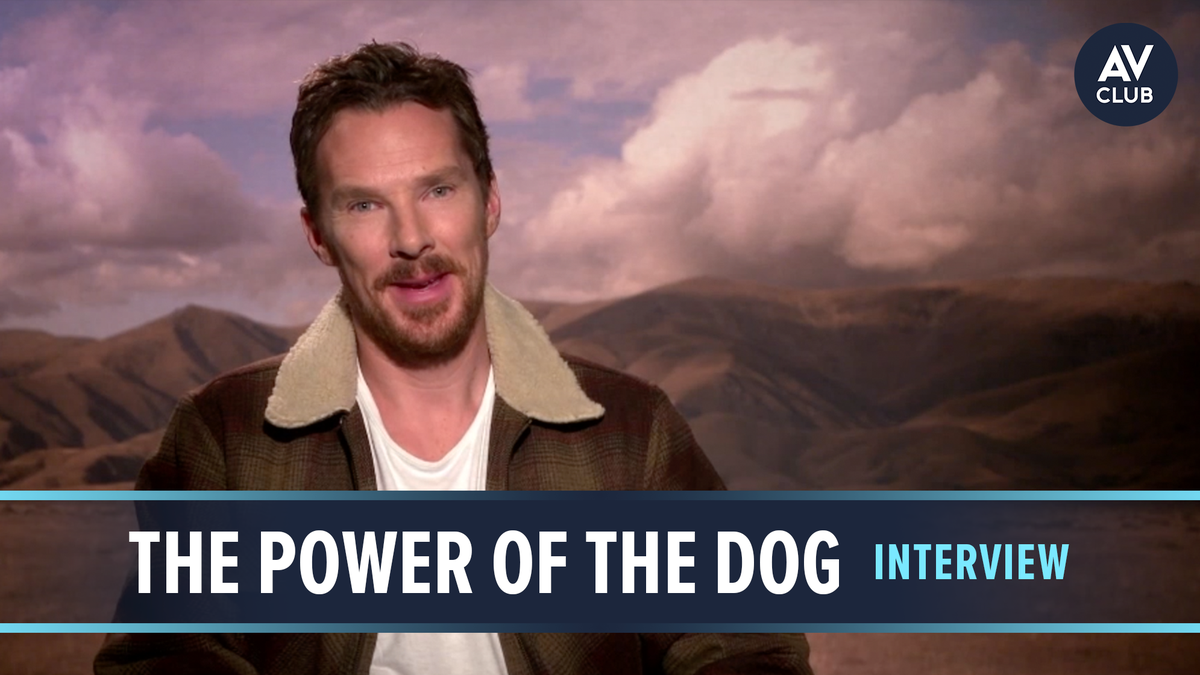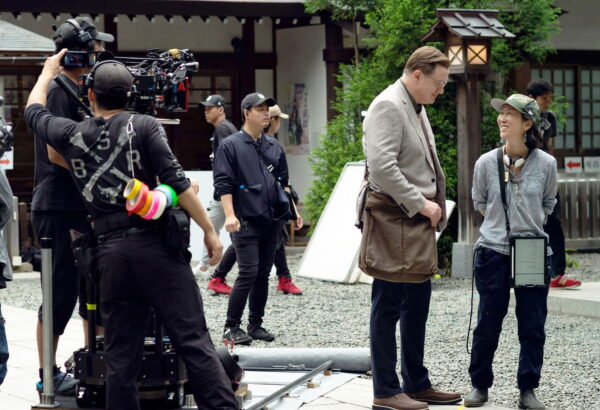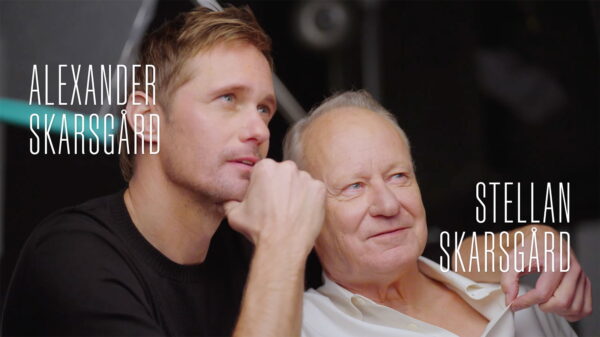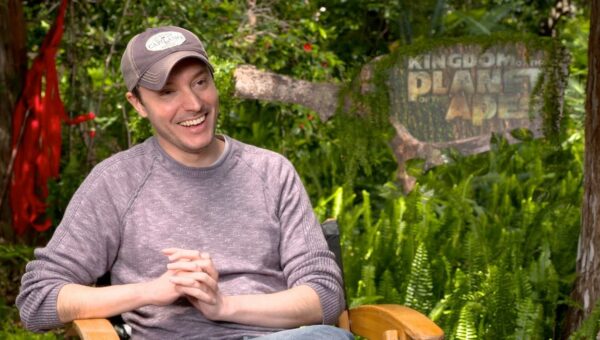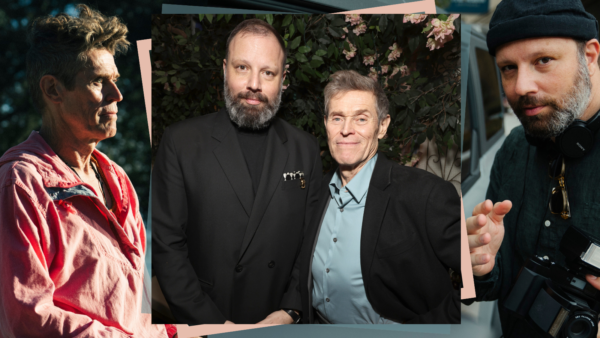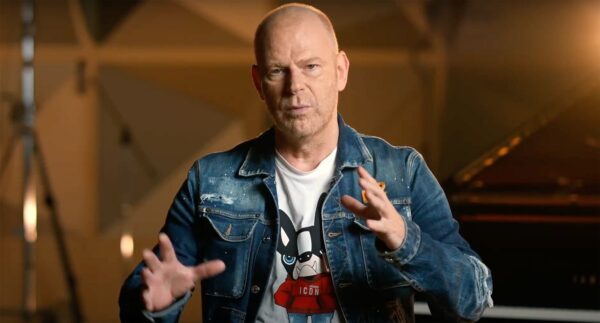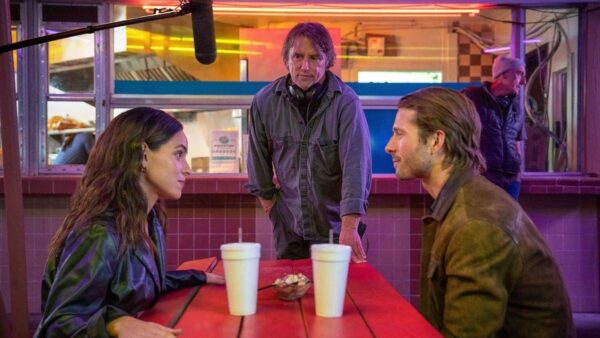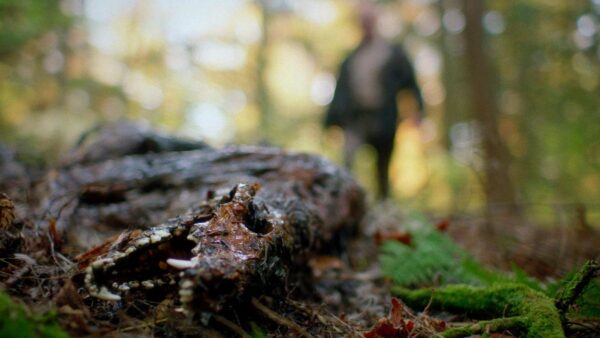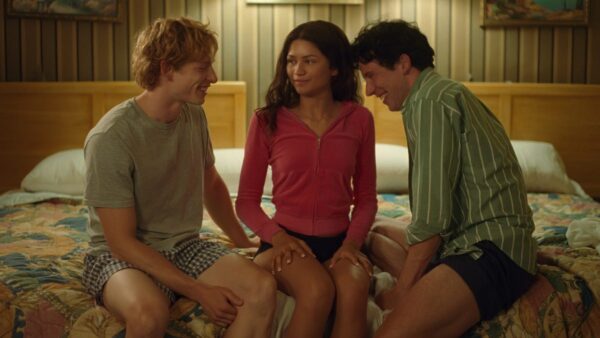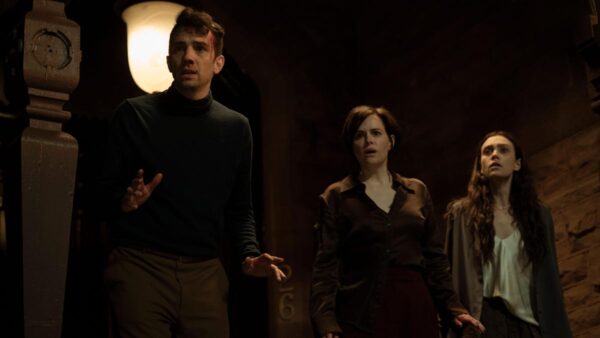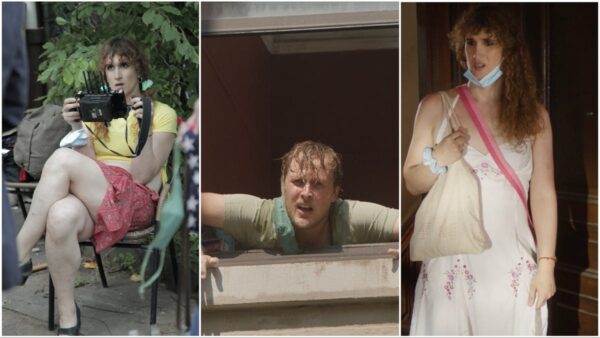Welcome to Random Roles, wherein we talk to actors about the characters who defined their careers. The catch: They don’t know beforehand what roles we’ll ask them about.
The actor: A wildly prolific performer with a set of pipes so enchanting that British researchers have deemed it almost “the perfect voice,” Jeremy Irons has been a fixture in films and television for over 40 years. Since coming to prominence in Brideshead Revisited, he has been in so many acclaimed projects that he’s won an Oscar, three Emmys, a Film Independent Spirit Award, and two Golden Globes. (And, really, why hasn’t this man been nominated for a Grammy? Let’s get him narrating some more books.)
Irons’ latest project finds him teaming up once again with Ridley Scott for House Of Gucci, in which he plays suave but stodgy family patriarch Rodolfo Gucci. The A.V. Club talked to him about that role and some of his many, many others.
House Of Gucci (2021)—“Rodolfo Gucci”
The A.V. Club: You’ve worked with Ridley Scott before. What do you like about working with him?
Jeremy Irons: There are two things I love about Ridley. First, his very dry northern English humor, which always keeps me on my toes. And second is the fact that he shoots with multiple cameras.
You probably know this through your work, but filming can be extremely tedious and go on for a long time, and that drains you as an actor when you’re trying to sort of keep a spirit in a scene. Ridley shoots with many cameras at the same time. Four cameras on Gucci. On the first picture I did with him, he sometimes had about seven cameras going.
That’s wonderful because it means you don’t have to do a performance and then reverse and then different angles and remember what on earth you were doing on take two when it was that way around. So that’s glorious. It also makes it very, very fast.
It enables him to cover—if a scene goes in a slightly different direction because of just the way it is, then he’s covered from all angles on that and he can cut the film as he goes along. So that speed and the energy that it creates, I love.
AVC: That sounds great. You don’t have to do insets, you don’t have to shoot over your shoulder, and all that.
JI: Directors have sort of forgotten that now, because most young directors now are interested in shots rather than performance, and so they know what they want to do with the camera rather than knowing what they want to see from a performance. A lot of young directors come at it from a completely different point of view now.
It’s wonderful that Ridley concentrates on performance. István Szabó, the Hungarian director, I remember hearing him talk to the crew and saying, “Now, listen, you’re going to be absolutely ready because when this actor comes on to play this scene, I only want him to do it once because the first time he does it, it will be the really interesting take.” And so he would normally accept the first take which of course is great because you come with enthusiasm, energy and the sort of unknowingness, which by the time you get to take 35 has dissipated.
AVC: Do you feel like your first take is your best take objectively?
JI: Oh, I don’t think actors can judge. Actors normally think they like two or three takes because then they begin to recognize what they’re doing and control it. It doesn’t necessarily mean it’s better. They’re just more comfortable.
AVC: I was reading some of your earlier interviews before we talked, and a few years ago you talked to The Independent and mentioned working with Al Pacino. You said “I’ve never been passionate about acting, and I find more and more that I work to live the life I want to live. An actor like Al Pacino lives to act.”
JI: Well, I don’t know. I’m not sure about that. I know there are some actors who live to act that couldn’t do without it. I tend to act to live. I do it as a job of work to enable me to do other things that I love doing. So when I’m not working, I’m usually actually a bit happier than when I am working, and sometimes I get a bit cross when I have to go off to work because it interrupts something I’m doing in life, which I may value more, but which, of course, won’t pay me.
Watchmen (2019)—“Adrian Veidt”
AVC: Is there a project that you’ve done—maybe one we’ve talked about, or maybe something else—that you just remember having a ton of fun on? Like, you just looked around on set and thought “every day is like an amusement park,” or something like that?
JI: Oh yeah, I made a picture called The Mission years ago. You’ll be far too young to remember it, but it was with Bob DeNiro and it was set out in South America and I was living in the jungle with the Indians.
Beside the set, there was a river and there was a dugout canoe in there and between takes or between set ups, I was able to get in the dugout and just paddle down to the sea and the beach where there was nothing but turtles laying eggs and some rather interesting looking crabs. You thought, “Has this beach never been stepped upon by man before?”.
Of course it probably had, but that whole life… I loved the making of that film. I also love the film. But what you remember about your films really is the making of them and how enjoyable that was, the people who were involved, much more than the performance. It’s just the life around the film. If that was happy and exciting, then that leaves a very happy memory in the head. I quite enjoyed working with Al [Pacino] on Merchant Of Venice because I love Venice.
AVC: How could you not?
JI: For a man who likes boats and walking in solitary alleys, it’s a great place.
AVC: There are some really beautiful sets in House Of Gucci, too, like that house you were in was really stunning.
JI: It was extraordinary. Ridley has given the film a great style. I think it really sort of it smells like a Gucci loafer. You know, it’s got that sort of “mwah!” about it.
Brideshead Revisited (1981)—“Charles Ryder”
AVC: I always like to ask about an actor’s first day on a TV or movie set, what that feeling was like. I don’t know what it was for you chronologically, but do you remember that feeling?
JI: Yeah, absolutely terrifying. Absolutely terrifying, but quite exciting, that sort of not knowing anything.
I suppose when I did Brideshead Revisited, which was, I think, 18 months of work and I was in practically every setup, that was sort of like 13 hours of a movie. It was like doing six feature films back to back, and it made me understand the whole set up and be very, very comfortable and know what a light there did or what a light there did or and what that camera move is going to do and how it was going to look on the screen. I became, so to speak, fluent in the language of filmmaking and on the way the whole structure works of a movie crew. Once you have that, it’s easier.
AVC: Some people have told me that, coming from theater, they had to learn to quiet down in scenes, to not project.
JI: I would disagree with some of that because I watch some movies—actually often American movies—and I struggle… Marlon Brando had an awful lot to be blamed for because he was a mutterer and an awful lot of actors think their voices are terribly sexy if they speak like that. It’s amazing. I’m not as young as I was, and maybe my hearing isn’t as acute as it was, but I often I think, “What’s he’s saying? Is it worth hearing? I don’t know. Let me keep trying.” There’s a school of matter in America and in England, too, where in films they think the sound man can do anything. Actually, they can’t do everything.
I remember doing a shot with somebody. It’s a corridor shot—I won’t say what the show was. We were walking through this crowded lobby, sort of like the Senate lobby, loads of people walking across and we were having this conversation side by side, and I couldn’t hear a word she said, so I didn’t know when she stopped. I had to have someone walking beside the camera who every time she stopped talking, he’d just drop his hand. I’d think, “That’s my cue,” and I’d say my line.
Talk about communication. It was none. I couldn’t hear her! I’m sure it sounded wonderful on the day with the mic, because you have mics sort of everywhere now, but it was very hard to act with someone [whispers.] So there we are.
AVC: In part because I have kids and I don’t want to crank the volume when they’re sleeping, but I do think movies and TV shows are getting quieter and quieter. I watch everything with the captions on now. It could also be that the dynamics of movies are really sweeping and unregulated, like the explosions are too loud and the speech is too quiet.
JI: I was watching Succession—wonderful show. Brian Cox, one of my favorite performances going at the moment. I was watching the other night at my son’s and I don’t think it was the direct transmission. I think it was on whatever it is on, you know, we got to episode three or whatever. He’s got quite a big screen, and I thought, “It’s not matching up.” I went closer and it was out of sync. It was just a little out of sync. Why does that happen with all our technology?
AVC: No idea. Bad upload, maybe?
JI: How did we get onto this?
Reversal Of Fortune (1990)—Claus Von Bulow
AVC: After Brideshead, you were nominated for a BAFTA, and then a few years later you did Reversal Of Fortune, which you got a lot of acclaim for. Was there a point in your career where you thought, “This is working. I don’t need to consider learning a trade”?
JI: Well, I gave myself till I was 30 as an actor. I thought, if by 30, I’m still struggling, then I’ll look for something else because I have the the youth and the energy to do so. But in fact, by 30 I was doing Brideshead and The French Lieutenant’s Woman and I thought, “Well, with any luck…,” you know?
I sort of potted on very happily and I stopped thinking of finding other ways to earn my living, I thought, “I think this will be all right.” But always when I start a new project based in the theater or in film, day one, I always feel like a plumber. I feel completely out of my depth and then I begin to get into the character and and it’s all right, but it never gets easy. There’s always the desire to test yourself, to push yourself, and not to sit on any imagined laurels.
AVC: I was talking to Chris Columbus recently, and he mentioned he had to convince Alan Rickman to do Snape in Harry Potter because Alan Rickman was worried about being typecast as a villain. Have you ever worried, “Oh, I can’t do that one because I’ve done two in a row and I want to do something different. I don’t want people to see me just as this,” or whatever it may be?
JI: Sometimes that happens. I won’t be specific, but that has happened. I’ve been offered something, and I think, “I’m going too far down this alleyway.”
As an actor, you have to have a sort of business box where you think about your career and that awareness of where you are and where you want to be and what sort of work you want to be doing and what work you are doing, which is maybe the same. You do make decisions as a result of that, and they’re sometimes wrong decisions. But I have passed over things because I thought, “I’m going too far down this road.”
Inland Empire (2006)—“Kingsley Stewart”
AVC: I don’t want to make assumptions, but I’m assuming that working on a David Lynch movie is not necessarily something for the business box. What do you like about working with David Lynch?
JI: Oh God, David. I wouldn’t call something that didn’t earn too much money for me or for the film a passion project. I look at everything as just the value and the value of the work. David Lynch is so off the wall. I remember talking to to Laura [Dern] before I started filming with him. She’d been working with him for a year. I said, “Laura, what’s this film about? He’s just giving me bits of a scene over here. What’s it about? You’ve been working on this for how long?” And she said, “I have no idea.” So I thought, “Well, I’ll stop worrying then.”
David is glorious, I remember the very first day I turned up, we were shooting in a studio that Warner Brothers had lent him in Los Angeles and he said, “Irons, you’re playing the director of this film. I’ve written this bit for you for this scene,” which was a page long, right?
Now, you know, learning lines takes me a little while. It takes me the night before, maybe. But a page, you know, a day before. I said, “David, I can’t do this now!” He said, “Of course you can. Listen, what do directors always have?” I said, “Well, I don’t know. Sometimes they have a chip on their shoulder? No. Hm, what they always have?” And he said, “They always have notes. So we’ll just write it down there, put it there, and you can even put it on the wall if you want.” So I sort of prepared myself and we shot the scene in about an hour.
He has that wonderful way of making you feel at ease and empowered. I think he’s a magical filmmaker. When I saw Inland Empire, I thought “This is like sitting in front of a Rothko.” As an audience you look at it and you think, “Well, I don’t know what it’s about, but it’s absolutely amazing.” I see that image and I see that in it and someone else will see something quite different in it. That’s what I love about David’s work. It’s obscure and interesting.
Le texte ci-dessus est une traduction automatique. Source: https://www.avclub.com/jeremy-irons-on-al-pacino-scar-and-why-david-lynch-mo-1848114304?rand=21407




